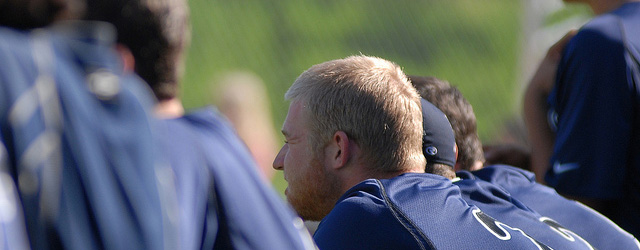
I was recently speaking with a high school baseball coach and asked him how his team was looking for the upcoming season. His exact response was,
“Team was looking awesome, however, three top players came to a football game under the influence of alcohol and are no longer a part [of the team]. Hurts bad since two were early D-I signees. Poor choices.”
The D-I recruits were both position players and the other player was looking to be the number one starter in the pitching rotation. All three are seniors.
I can’t tell you how upset and frustrated it made me to hear this news. These players gave no thought to their individual situations, how alcohol could affect their performance, and they never considered the negative effect this has on their teammates. As the coach said, “Poor choices.”
How It Affects the Team
Every athlete has a responsibility to his team – not just his coaches, but to his fellow teammates as well. This particular team was looking to make a championship run in the upcoming season. With the dismissal of three top players, where does that put the team’s chances now?
Without even thinking about it, these players have hung their teammates out to dry. Two excellent hitters are no longer in the lineup, making it more difficult for the team to generate runs. As for pitching, the team now has to use younger, less-experienced arms. I shouldn’t have to tell you that this makes for longer defensive innings and more mistakes.
On the positive side, a few players who may not have seen a lot of playing time, will now get the opportunity to step up and earn some valuable experience at the varsity level.
The College Coach’s Point of View
Now let’s think about the players involved. How does a situation like this influence their future college coaches? What about their potential to be drafted? I had the opportunity to run this situation by a few Division I coaches and received some good insight as to what their next course of action would be in a situation like this.
Let’s start with the unsigned senior pitcher. This pitcher pushes himself all junior year and all summer, gradually increasing his velocity and showing that he can command the strike zone. Because he did not have a lot of looks from colleges as a junior, his senior year is all the more important. His senior year is his chance to showcase how much he has improved and hopefully catch the eye of a few college coaches. Now with no chance to even step foot across the foul line, what opportunity does he have to pitch in front of college coaches? None.
Here’s some feedback I received from one college coach:
“[The non-committed] player would be very difficult to recruit. Would have to be a late commitment on no athletic money provided there are no issues the rest of his senior year.”
So, even if a college was interested in this particular kid, he is now virtually relegated to walk-on status with little opportunity to earn a scholarship.
D-I Recruits are Not Immune
How about the two position players who have already committed to D-I programs? No need for them to worry, right? After all, they are all set. Missing their final year of high school will not matter because they already have an opportunity to play at the next level. Think again.
College coaches do a lot of research on high school players they are interested in. They make phone calls to coaches, scouts, and teachers. They check Facebook and Twitter accounts. College coaches will spend a lot of time checking the background of a player in order to get an accurate picture of that player’s character. If any red flags are raised, a college program may think twice before pursuing the recruit further.
Another D-I coach informed me that his staff decided to stop recruiting a player because of what was posted on the player’s Twitter account.
Furthermore, a college coach can still pull a scholarship from a recruit if he has yet to step foot on campus, especially if the player has yet to sign a National Letter of Intent. Nothing is guaranteed. That being said, if the player didn’t generate that much excitement with a college program to begin with, then it makes it much easier for a coaching staff to stop pursuing that potential recruit.
You Always Represent Something Greater than Yourself
Here’s the thing, as a ballplayer you represent your Maker, your family, and your team. Whether you like it or not, people will associate your actions with those that you represent. You need to be thoughtful of your decisions, the people you surround yourself with, and the environments that you place yourself in.
Many people who hear about about a story like this will think it’s no big deal. They are just like any other high school kids. Well, these kids are not just any high school kid. I’ll leave you with one more response from a Division I head baseball coach:
“They are not any other high school kid. We try to hold ourselves to a higher standard. No one is perfect, I’m not saying that, but if these issues arise now, what will happen 2 or 3 years down the road? Definitely something to think about for a college coach.”
What do you think about situations like this? Feel free to leave your thoughts and comments below.
Leave a Reply